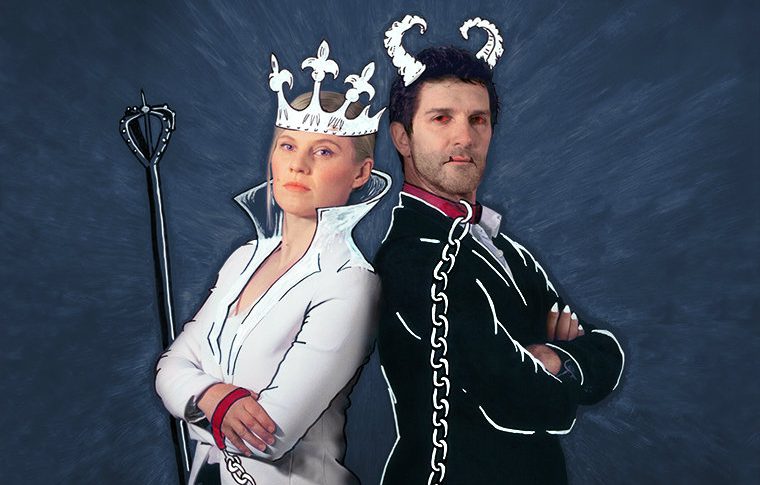Threshold can be seen as a direct reflection of our contemporary social and political climate, where Australians’ demands for transparency from their government and media outlets is rendered through the medium of theatre. Tackling complex issues such as the dangers of bureaucracy, the toxicity of hyper-fixational identity politics and the humans behind the headlines, Threshold was a theoretical success, even if the delivery failed to hit the same mark.
The main success of the show lay in its humanisation of the Australian media without failing to critique it. Excepting the show’s consistent attack on the governments’ media ban on Nauru, Threshold did not fall into the trap of painting a ‘good versus evil’ portrait of the Australian political landscape; rather, it presented the relationship between the government, media and public as a complex system where good intentions can lead to negative outcomes, and how personal motives and politics can wreak havoc on delicate institutions.
The articulation of these ideas was somewhat left to be desired. Whilst Benj D’Addario’s performance as the disenchanted and righteous journalist Bill Mackenna was a quality one, the other actors’ portrayals often felt stilted. Sometimes, the plot and script felt unrealistic, especially concerning, spoiler alert, the type of death of one of the characters. The demanding editor Alexander Kastellorizio, played by Esther Longhurst, and self-interested politician Peter Franklin, played by Jeff Watkins, had understandingly formal scripts compared to other characters, but what was intended to be formal felt contrived.
Whilst the use of minimal props to create a parred-back aesthetic allowed the actors to shine, the dialogue-heavy script was overbearing for such a stage setting: perhaps slightly shorter scenes and a more diverse use of props would have allayed this. On a more positive note, the scene changes were clean, and dynamic: the transitions accompanied silent and abstract performances that successfully functioned to allegorise characters’ experiences, adding another layer to the show.
Threshold could easily have been more geographically and demographically universal had it focussed less on contemporary Australian political issues. This is not a criticism: I enjoyed watching a show that was highly pertinent to the current moment, and fiercely Australian. Far from a soapbox lecture, Threshold asked its audience to empathise with well-meaning, industry professionals-turned-victims as a means of motivation towards changing the dysfunctional and precarious interdependence between the government, media and public.
You can watch Threshold at the Blue Room Theatre until August 25, and it is well worth the watch.
Stirling Kain | @stirlingkain
‘Stirling spiritually identifies with Katherine Minola and thinks Oscar Wilde is a minor diety.’

